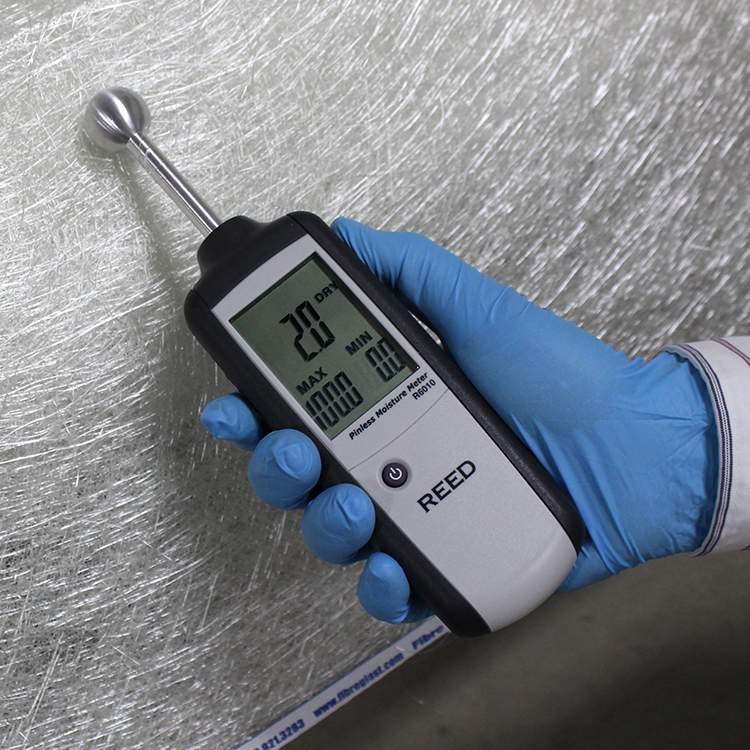Moisture Meter Purchasing Guide: What to Search for in High-Quality Instruments
Moisture Meter Purchasing Guide: What to Search for in High-Quality Instruments
Blog Article
The Ultimate Overview to Moisture Meters: A Comprehensive Introduction and Exactly How They Can Save You Cash
In the world of building upkeep, building, and various sectors, the relevance of properly measuring dampness levels can not be overstated. Moisture meters serve as vital devices in detecting and monitoring moisture web content in materials, assisting in stopping costly problems and making sure the quality of items. Understanding the subtleties of different sorts of moisture meters, their applications, and the possible cost-saving benefits they supply can be a game-changer for services and professionals alike. Finding how these tools can not only enhance procedures however also contribute to economic savings is a trip worth starting.
Sorts Of Wetness Meters
Numerous sorts of wetness meters are available for different applications in different sectors. One common kind is the pin-type moisture meter, which determines the electrical resistance between two pins inserted right into a product. This type appropriates for timber, drywall, and other building materials. Pinless dampness meters, on the various other hand, use electromagnetic sensor plates to scan a larger location without triggering damages to the material's surface. Moisture Meter. These meters are optimal for promptly assessing moisture degrees in large locations such as walls and floors.

Infrared dampness meters determine the thermal properties of a product to identify its dampness material non-invasively, making them valuable for applications where pin or pinless meters may not be ideal. Comprehending the different types of dampness meters offered can help sectors select the most suitable device for their specific dampness measurement demands.

Benefits of Making Use Of Wetness Meters
Moisture meters offer vital advantages in accurately keeping track of and analyzing moisture degrees in diverse products and settings. One of the main benefits of utilizing moisture meters is the prevention of possible damages created by excess dampness.
Furthermore, using moisture meters can result in enhanced energy performance. By recognizing areas with high wetness levels, such as leaks or inadequate insulation, changes can be made to enhance energy conservation and lower energy costs. In farming settings, moisture meters play a critical duty in enhancing crop returns by enabling farmers to check soil dampness levels and make informed watering decisions. Generally, the benefits of making use of wetness meters span throughout different industries, giving economical services and advertising much better quality control practices.
How to Pick the Right Moisture Meter
When choosing a moisture meter, it's vital to make certain that the meter is ideal for the details product you will be screening. Various materials have varying electric homes that can affect dampness analyses, so choosing a meter designed for your material is crucial for exact results. By thoroughly evaluating these factors, you can pick a wetness meter that meets your demands and gives click for info accurate wetness dimensions for your tasks.
Correct Techniques for Wetness Meter Usage

Expense Cost Savings With Wetness Meter Applications
Just how can the critical use of dampness meters cause substantial price financial savings across numerous sectors? Moisture meters play an essential role in price financial savings by stopping potential damages and making sure high quality control in different sectors. In the farming market, moisture meters help in figuring out the ideal time for harvesting plants, avoiding over-drying or excess dampness that can affect the final item's high quality. This precise surveillance helps farmers stay clear of unnecessary losses and maximize their return.
Likewise, in building and construction, moisture meters aid avoid pricey damages by identifying moisture degrees in structure materials, such as timber or concrete, which can lead to structural concerns if not attended to promptly. By determining trouble locations at an early stage, contractors can take restorative procedures to avoid comprehensive fixings or substitutes, ultimately saving money and time.
Furthermore, in the food processing market, dampness meters are essential for keeping track of product top quality and making certain compliance with safety guidelines. By properly gauging moisture content in foodstuff, makers can protect against spoilage, maintain freshness, and decrease waste, leading to substantial price financial savings. On the whole, the strategic application of moisture meters is a valuable investment that can result in substantial this cost reductions and improved efficiency across numerous sectors.
Conclusion
In conclusion, moisture meters are valuable devices for detecting and measuring dampness degrees in numerous products. By using the right moisture meter and adhering to correct strategies, customers can successfully prevent pricey damages triggered by excess wetness. Purchasing a quality wetness meter can lead to significant cost financial savings over time by determining prospective issues at an early stage and allowing punctual removal. Eventually, moisture meters are important tools for preserving the read integrity and long life of products and structures.
Wetness meters serve as crucial tools in identifying and keeping track of moisture web content in materials, assisting in preventing expensive problems and making sure the quality of products. Infrared dampness meters measure the thermal homes of a product to determine its wetness web content non-invasively, making them beneficial for applications where pin or pinless meters may not be appropriate.Wetness meters supply important benefits in properly checking and assessing wetness degrees in varied products and settings. In agricultural setups, moisture meters play an essential function in enhancing plant returns by enabling farmers to monitor soil wetness levels and make notified watering choices.In verdict, dampness meters are beneficial tools for determining and discovering wetness levels in different materials.
Report this page